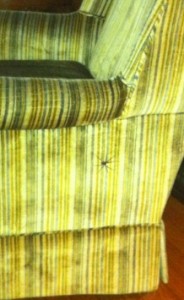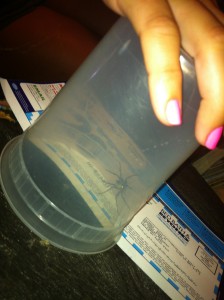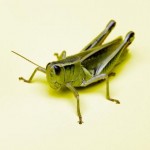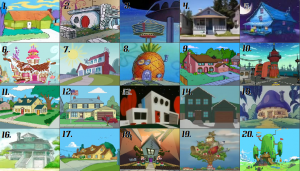In recent weeks, Louisa, Birgitta, Emerald, and I have made friends with a friendly critter who lives on our front porch, a handsome toad we named Terrence.
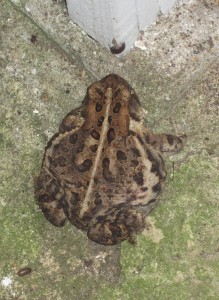 Every evening at about 9:00, Terrence appears in the same corner of the porch, only a few inches from where we step in and out of the house. As we’ve passed, time after time, he’s never flinched, even at Jack’s dangerously close paws that are as big as he is. And in the morning, Terrence is always gone.
Every evening at about 9:00, Terrence appears in the same corner of the porch, only a few inches from where we step in and out of the house. As we’ve passed, time after time, he’s never flinched, even at Jack’s dangerously close paws that are as big as he is. And in the morning, Terrence is always gone.
Late one night as we stepped past Terrence to walk Jack, I asked Louisa, “What is it about the corner of our porch that brings him back night after night?”
“The bug-buffet, Mom.”
Of course she was right. Frogs and toads love bugs, and our porch light brought an ongoing, yummy supply for Terrence. Though we never saw him nab one, we knew he was.
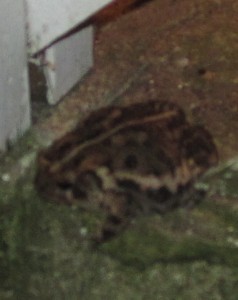 As much as we enjoyed our tenacious toad, we had reason to believe his days at the buffet were numbered. After our encounter with a brown recluse spider last week, we enlisted the help of a pest control service scheduled to arrive with potent chemicals soon, though Terrence didn’t know it.
As much as we enjoyed our tenacious toad, we had reason to believe his days at the buffet were numbered. After our encounter with a brown recluse spider last week, we enlisted the help of a pest control service scheduled to arrive with potent chemicals soon, though Terrence didn’t know it.
* * * *
All of us are familiar with the old adage, “What he doesn’t know won’t hurt him.” It’s ready justification for withholding information from, say, an accident report, or an information resource, or a courtroom testimony. Another example might be a good cook who’s asked to share a recipe. She purposely leaves out one ingredient so another cook’s finished product won’t taste as good as hers.
But the old adage isn’t really true; what someone doesn’t know can hurt him. Even in the case of withholding an ingredient, which seems silly, two people get hurt: the first cook who compromises her integrity for selfish gain, and the second, whose recipe fails, making her doubt the first cook’s honesty.
God has a strong opinion about people who wink at lying. For instance, lying is referred to twice in a list of seven things that are “detestable” to him. (Proverbs 6:17,19) He also pits lying against truth, saying those who lie are choosing the devil over him. Satan has no truth in him (John 8:44), and Jesus is the truth (John 14:6).
He challenges us to behave more like him than the devil, choosing a high standard of telling “the whole truth and nothing but the truth.” The reason is important: to reflect the Creator in whose image we’re made. Secondly, he wants to spare us and others from unnecessary hurt.
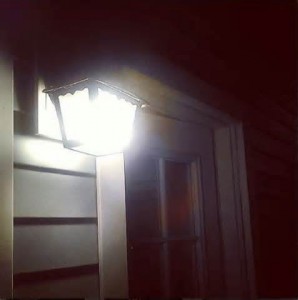 As for Terrence, the honest, whole-truth thing to do was let him know harsh chemicals were coming, and his best option was to relocate. So we scooped Terrence into a box and drove him to the far corner of our subdivision, gently placing him in a bush near another lighted porch with another delectable bug buffet.
As for Terrence, the honest, whole-truth thing to do was let him know harsh chemicals were coming, and his best option was to relocate. So we scooped Terrence into a box and drove him to the far corner of our subdivision, gently placing him in a bush near another lighted porch with another delectable bug buffet.
Bon appétit, Terrence!
“Truthful lips endure forever, but a lying tongue lasts only a moment.” (Proverbs 12:19)

